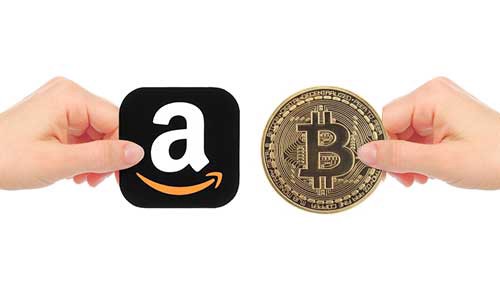Bitcoin vs Cedis: Which is Better for Online Transactions?
Introduction
In this digital age, the rise of digital currencies has revolutionized the way we conduct online transactions. The importance of seamless online transactions cannot be overstated, as they play a significant role in shaping the global economy. This article delves into the debate between Bitcoin and Cedis, exploring their features, advantages, limitations, and the factors to consider when choosing between the two.
I. What is Bitcoin?
Bitcoin, the first and most well-known cryptocurrency, emerged in 2009. Its creation marked a pivotal moment in the world of finance and technology. Bitcoin operates as a decentralized digital currency, meaning it is not controlled by any central authority like banks or governments. It functions on a technology called blockchain, a transparent and secure digital ledger.
Using Bitcoin for online transactions offers several advantages. Firstly, it provides enhanced security and privacy features. Transactions made with Bitcoin are encrypted, ensuring the privacy and protection of user information. Additionally, Bitcoin transactions typically have lower fees compared to traditional banking systems, making it a cost-effective option for online transactions. Furthermore, Bitcoin enables borderless transactions, allowing people from all around the world to engage in seamless financial interactions.
However, Bitcoin also presents potential risks and challenges. One of the notable concerns is its volatility and price fluctuations. Due to its decentralized nature and limited supply, the value of Bitcoin can experience significant changes, which can impact its purchasing power. Furthermore, regulatory concerns and legal implications surround Bitcoin, as governments worldwide are still grappling with the appropriate regulations. Lastly, there are technical barriers that hinder the mainstream adoption of Bitcoin, such as scalability issues and the need for user-friendly interfaces.
You may like Top 5 Bitcoin Trading Strategies in Cedis Market
II. Understanding Cedis (Ghanaian currency)
Cedis, the national currency of Ghana, has been the backbone of the country’s financial system for many years. The traditional banking system plays a crucial role in facilitating online transactions involving Cedis. Using Cedis for online transactions offers several advantages as well. Firstly, there is familiarity and trust within the local market when dealing with Cedis. Ghanaians are accustomed to using their national currency, which instills a sense of confidence in their financial interactions.
Moreover, the support from the government and regulatory bodies contributes to the stability of Cedis in the online realm. The backing of the government adds an extra layer of trust for users engaging in online transactions with Cedis. Additionally, Cedis is less exposed to the price volatility commonly associated with cryptocurrencies, making it a more stable choice for online transactions.
However, Cedis also has limitations. One of the primary limitations is limited accessibility outside Ghana. Unlike Bitcoin, which operates globally, Cedis is primarily used within the country. This restricts its utility for international transactions and hinders its global reach. Furthermore, international transfers involving Cedis often incur higher transaction costs compared to using Bitcoin. Additionally, traditional banking systems may pose potential security risks, such as the risk of fraud or data breaches.
III. Bitcoin vs Cedis: A Comparative Analysis
To better understand the strengths and weaknesses of Bitcoin and Cedis for online transactions, let’s compare them across various factors.
A. Transaction speed and efficiency: Bitcoin transactions can take longer to confirm compared to transactions involving Cedis. The decentralized nature of Bitcoin and the need for confirmations on the blockchain can sometimes lead to longer processing times.
B. Security and privacy features: Both Bitcoin and Cedis offer security features, but Bitcoin’s encryption and decentralized nature provide an added layer of privacy and security for users.
C. Accessibility and a global reach: Bitcoin’s global accessibility allows it to transcend geographical boundaries, while Cedis is primarily limited to Ghana. Bitcoin offers a more extensive global reach for online transactions.
D. Volatility and stability: Bitcoin is known for its volatility, experiencing significant price fluctuations. On the other hand, Cedis tends to be more stable due to its centralized nature and government support. Users seeking stability may prefer Cedis for their online transactions.
E. Transaction costs and fees: Bitcoin transactions generally have lower fees compared to traditional banking systems, making it an attractive option for cost-conscious users. However, Cedis may have lower transaction costs for local transactions within Ghana.
IV. Factors to Consider When Choosing Between Bitcoin and Cedis
When deciding between Bitcoin and Cedis for online transactions, several factors come into play:
A. Purpose and nature of the online transaction: Consider the specific purpose of the transaction. Bitcoin may be more suitable for global and anonymous transactions, while Cedis may be preferable for local transactions within Ghana.
B. Geographical scope and target audience: If the target audience is international, Bitcoin’s global accessibility makes it a viable choice. However, if the transaction primarily involves Ghanaians, using Cedis may be more practical.
C. Risk tolerance and willingness to embrace new technologies: Bitcoin, as a relatively new technology, carries inherent risks due to its volatility and regulatory uncertainties. Users should evaluate their risk tolerance and willingness to embrace these risks before deciding.
D. Regulatory considerations and legal compliance: Stay informed about the legal status of Bitcoin and its acceptance in your country. In the case of Ghana, it’s important to understand the regulations surrounding the use of Bitcoin and ensure compliance with local laws.
E. Integration with existing financial systems: Consider how well Bitcoin or Cedis integrates with your existing financial systems. Evaluate factors such as compatibility, ease of use, and support from service providers.
V. Case Studies and Real-World Examples
Online businesses adopting Bitcoin for transactions
Numerous online businesses across the globe have embraced Bitcoin as a payment option. Companies like Microsoft, Overstock, and Shopify have integrated Bitcoin into their payment systems, offering customers more flexibility and choice.
• Microsoft – The tech giant Microsoft allows users to buy games, movies, and apps with Bitcoin on its Xbox and Windows stores. This is a major mainstream company embracing Bitcoin and gives the cryptocurrency more legitimacy.
• Overstock – Overstock was one of the first major retailers to accept Bitcoin. They have accepted Bitcoin since 2014 and have done over $500 million in Bitcoin sales so far. Overstock’s move into Bitcoin helped pioneer the way for other companies.
• Shopify – The e-commerce platform Shopify gives thousands of merchants the option to accept Bitcoin. Any of the over 600,000 merchants on Shopify now have the choice to be paid in Bitcoin. This expands the reach of Bitcoin to a massive number of potential customers and businesses.
• Expedia – The travel site Expedia accepts Bitcoin for hotel bookings. Bitcoin can be used to pay for over 700,000 hotels on Expedia, from small single properties to large global chains. Expedia accepting Bitcoin makes it easy for travelers to pay with digital currency.
• Newegg – The electronics retailer Newegg accepts Bitcoin as payment. Newegg is one of the most popular destinations for tech and hardware and has over 38 million customers worldwide. Integrating Bitcoin has opened Newegg up to attracting more customers from the crypto community.
• AT&T – The mobile carrier AT&T accepts Bitcoin for bill payments. AT&T customers can pay their monthly wireless bill using Bitcoin, which provides more flexibility and options for customers. A major company like AT&T accepting Bitcoin is a significant milestone.
Success stories of using Cedis for online transactions:
In Ghana, local businesses and individuals have successfully utilized Cedis for online transactions. E-commerce platforms, such as Jumia and Kikuu, have enabled Ghanaians to engage in online shopping using Cedis:
• Jumia – The African e-commerce company Jumia has allowed Ghanaians to shop online using Cedis for several years. Over 1 million Ghanaians shop on Jumia, purchasing everything from electronics and fashion items to beauty and household goods using Cedis. This has enabled many Ghanaians to participate in e-commerce for the first time without needing foreign currency.
• Kikuu – The Ghanaian e-commerce startup Kikuu only accepts Cedis for purchases. Kikuu focuses on delivery of locally made goods from Ghanaian entrepreneurs. By only using Cedis, Kikuu has made it easy for Ghanaians to support local businesses through e-commerce. Over 50,000 Ghanaians shop on Kikuu, boosting many small local brands.
Conclusion
In conclusion, the rise of digital currencies, particularly Bitcoin, has transformed the way we conduct online transactions. Understanding the features, advantages, and limitations of Bitcoin and Cedis is crucial for making informed decisions when it comes to online transactions.
Bitcoin offers global accessibility, enhanced security, and lower transaction fees. However, its volatility and regulatory concerns may deter some users. On the other hand, Cedis provides familiarity, stability, and support from the government. Yet, its limited accessibility and potential security risks associated with traditional banking systems should be considered.
When choosing between Bitcoin and Cedis, factors such as the nature of the transaction, target audience, risk tolerance, regulations, and integration with existing financial systems should be carefully evaluated. Both currencies have their merits, and individual needs and preferences should guide the decision-making process.
Looking ahead, digital currencies are poised to play an increasingly significant role in online transactions. As technology advances and regulations evolve, it is essential to stay informed and adapt to the changing landscape of digital currencies and their impact on the global economy.
FAQs
Yes, Bitcoin can be used for everyday purchases. As more businesses and retailers accept Bitcoin as a form of payment, users can utilize their Bitcoin holdings for various goods and services.
The legal status of Bitcoin in Ghana is subject to government regulations. It is advisable to stay informed about the latest developments and comply with local laws when using Bitcoin in Ghana.
A. Can Bitcoin be used for everyday purchases?
B. Is it legal to use Bitcoin in Ghana? The legal status of Bitcoin in Ghana is subject to government regulations. It is advisable to stay informed about the latest developments and comply with local laws when using Bitcoin in Ghana.
C. How can I convert Bitcoin into Cedis?
To convert Bitcoin into Cedis, there are several methods available. One option is to use cryptocurrency exchanges that support Bitcoin-to-Cedis conversions. These exchanges allow you to sell your Bitcoin and receive Cedis in return. It’s important to choose a reputable exchange that operates within the legal framework of your country and offers secure and reliable services.
Another method is to use peer-to-peer platforms or local Bitcoin communities where individuals in Ghana are willing to buy Bitcoin using Cedis. These platforms connect buyers and sellers directly, facilitating the exchange of Bitcoin for Cedis at mutually agreed-upon rates. However, caution should be exercised when engaging in peer-to-peer transactions to ensure the security and legitimacy of the process.
Additionally, some digital payment services and mobile money platforms in Ghana have integrated support for Bitcoin transactions. These platforms enable users to convert their Bitcoin into Cedis and transfer the funds to their local bank accounts or mobile wallets.
It’s important to note that the availability and convenience of these conversion methods may vary based on your location and the specific services offered in your region. It’s recommended to research and explore the options available to you, considering factors such as fees, security, and ease of use.
D. Are there any risks of using Cedis for online transactions?
While using Cedis for online transactions has its advantages, there are potential risks that users should be aware of. These risks include:
- Security risks: Traditional banking systems may be susceptible to security breaches, fraud, or unauthorized access to personal information. It’s important to take precautions to protect your financial information when engaging in online transactions involving Cedis.
- Limited accessibility outside Ghana: If you have international transactions or dealings with individuals or businesses outside Ghana, the limited acceptance of Cedis can pose challenges. It may be necessary to convert Cedis into other currencies or explore alternative payment methods for cross-border transactions.
- Higher transaction costs for international transfers: When sending money internationally using Cedis, higher fees and exchange rates may apply compared to using digital currencies like Bitcoin. These costs should be considered when evaluating the most cost-effective option for your specific transaction.
To mitigate these risks, it’s important to adopt best practices for online security, such as using secure payment gateways, keeping personal information confidential, and regularly monitoring your financial accounts for any suspicious activity.
In summary, understanding the options available for converting Bitcoin into Cedis and being aware of the risks associated with using Cedis for online transactions is essential. By considering these factors, individuals can make informed decisions that align with their needs, preferences, and the specific circumstances of their transactions.




